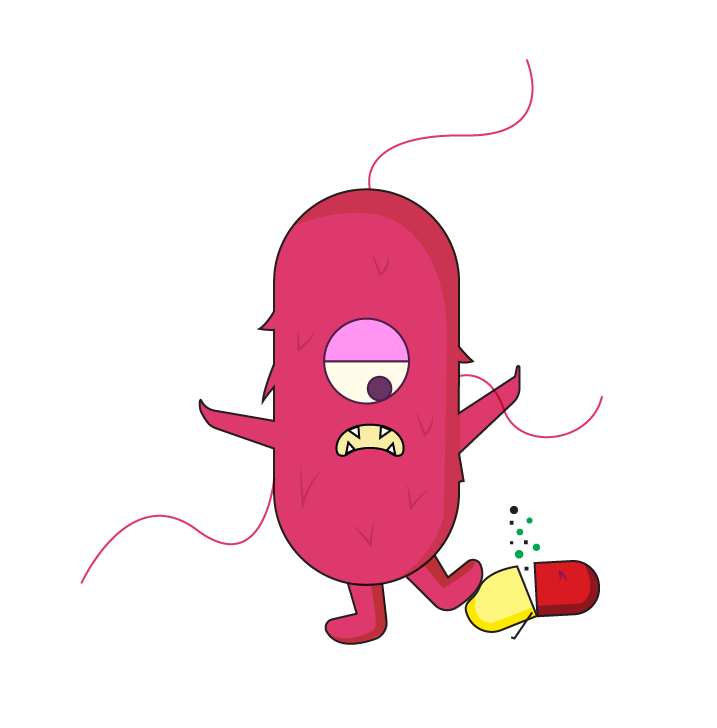
ANTIBIOTIC RESISTANCE
Resistance to antibiotics (or AntiMicrobial Resistance- AMR) has led to a global public health crisis in recent times. India is recognized as a major contributor to this problem. Our past work showed that mistranslation can lead to non-mutational tolerance to antibiotics, and in turn precipitate mutational resistance. Taking off from this, another angle of work in our lab will follow potential drug design for antibiotic tolerance, explore non-genetic drivers of resistance and attempt to link environmental with laboratory and clinical resistance.
Although there are several individual measurements of environmental AMR across water bodies and soil, we lack a consistent record of local AMR over time. In turn, this constrains the development of an effective response. The recent pandemic has underlined the importance of tracking environmental bacterial reservoirs, establishing a lab-environment-clinic axis and developing databases that will enable advance warning mechanisms. We hope to build on our basic science observations in exploring mechanisms of tolerance and resistance, while also foraying into public health problems and drug design.
To this end, our lab is currently part of an all-India consortium for tracking pathogens and AMR in the environment (https://data.ccmb.res.in/apsi/about/) supported by the Rockefeller Foundation. We carry out waste water surveillance for AMR in the Sonipat (Haryana) & Delhi regions and hope to have exciting data supported by lab experiments, by mid-2024.
